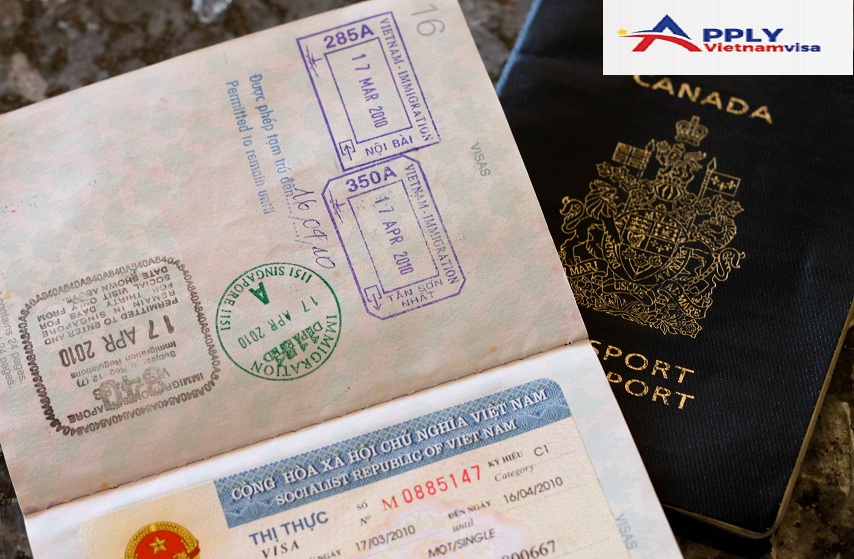Coronavirus (COVID-19) Updates: Read
CORONA VIRUS STATUS IN VIETNAM - A SAFE COUNTRY FOR TRAVELING
- Feb 24th 2026, 04:05:07 (GMT +07)
- +84.899.33.12.12
- [email protected]
- Sign up | Sign in
-
English

Informative articles about Vietnam visa and travelling
The National Assembly of Vietnam recently passed a law amending the current law of Vietnamese Immigration (Vietnam Migration Law 2020) when issuing visas to foreign visitors. The new laws apply to visas for entry, exit, transit and residence in Vietnam. These amendments will take effect starting July 1 this year.
Below are the changes in Vietnam visas for foreigners as a result of these amendments.
Before, the only time where a common visa will be issued is when a child shares a passport with a parent or guardian. This applies to all children who are below 14 years old. The rule was mentioned in Article 7 of the Law on foreigner’s entry and exit in Vietnam. This was enacted last 2014.
On the new law, there are two instances where the sharing of passports will be allowed:
All tourists who traveled to Vietnam by sea. The visit should be for the purpose of tourism in accordance with the programs set by the International Tourism Enterprises of Vietnam.
Delegates of foreign military ships who plan on undertaking a formal tour program outside of the port where their ship is being anchored.
The visa status conversion is included in the recent amendments. Under this new law, foreigners can now change their visa status under the following conditions:
Foreigners who are able to prove that they are an investor of a particular company in Vietnam. It also applies to those who are official representatives of foreign organizations based in Vietnam. These foreigners can now change their visa without the need to leave the country.
Family members who wanted to stay longer in Vietnam by changing their visa can also enjoy the same privilege. However, in order to be granted a change of visa, they must be able to provide proof of relationship with the sponsoring entity. For instance, they must have documents proving they are related as husband or wife, mother or father, etc.
The new law also applies to foreign visitors who were invited by a local organization or agency in Vietnam. But before they can change their visa, they must be able to provide proof of invitation or possess permits according to Vietnam’s labor laws.
Those who entered using an electronic visa or e-visa and received a job offer while in the country can also benefit from this law amendment. They are able to acquire a work visa but they should be able to provide work permits or certification. The permit or certification must be issued according to Vietnam’s local labor laws.
Take note that the new visas that will be issued as a result of the visa conversion must indicate a new signature. It should also show the time duration that the visa would be good for.
In the previous laws on Vietnam visa issuance, visas can only be attached in the passport. Some visas are issued in a separate paper. But with the new laws, visas can now be issued electronically. Under Article 7 of this Law, Vietnam will now issue an electronic visa to foreign visitors. This visa is also known as the e-visa.
Under Article 12 of the 2014 Law, there are three cases that were eligible for the visa exemption. These are the following:
Treaties where Vietnam is one of the contracting parties.
Permanent residence card holders or holders of temporary residence cards.
Persons who entered Vietnam through the border gate economic zone or those under the special administrative-economic units.
On the new law that will take effect on July 1st, 2020, the coastal economic zones will be exempted from a visa under the following new conditions:
They have their own International airport.
The contracting party has its own separate space.
Their geographical boundaries are isolated from the mainland.
They must adhere to the suitable social and economic development policies of Vietnam. Furthermore, they should not cause harm to the country’s national defense and will not affect the social order and security.
The amended laws have received an overwhelming majority of votes from lawmakers. These new laws are meant to encourage foreigners to come to Vietnam that can further boost the company’s economy. With these laws, it will now be easy for foreigners to invest or take up jobs. They no longer need to waste a lot of money and time on immigration procedures. Vo Trong Viet, the chairman of Vietnam’s National Assembly Committee on National Defense and Security has added that despite the new amendments they will continue to observe strict monitoring on all foreigners residing in Vietnam.
Should you need any consultation or assistance, feel free to contact us at +84.899.33.12.12 or email us at [email protected].
Our address: No. 88 Xa Dan Street, Phuong Lien Ward, Dong Da Dist, Hanoi, Vietnam

